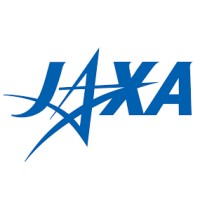JAXA/Institute of Space and Aeronautical Science (ISAS) has successfully conducted lunar and planetary exploration missions such as KAGUYA, HAYABUSA, and HAYABUSA2, and has produced scientific data of worldclass quality. In addition to domestic missions such as SLIM, Destiny+, and MMX, JAXA also plays an important role in overseas planetary exploration missions such as JUICE and...
Find out moreYou have successfully applied for this job!
Sorry you can only apply the a role once.
The job you're currently viewing has expired, you will be unable to apply for this role!
Full-time
Specially Appointed Assistant Professor (Tenure-track system)
Chofu-city, Tokyo
$80,000 - $90,000
JAXA/Institute of Space and Aeronautical Science (ISAS) has successfully conducted lunar and planetary exploration missions such as KAGUYA, HAYABUSA, and HAYABUSA2, and has produced scientific data of worldclass quality. In addition to domestic missions such as SLIM, Destiny+, and MMX, JAXA also plays an important role in overseas planetary exploration missions such as JUICE and HERA, and is expected to produce more scientific data in terms of quality and quantity in the future.
ISAS is seeking researchers who will be responsible for the development of data dissemination systems and archiving technologies to produce scientific results for the future small body exploration and comprehensive landing exploration of gravitational bodies, that the Department of Solar System Sciences will conduct in the future. For this purpose, ISAS will recruit a specially appointed assistant professor who will work closely with the ISAS Lunar and Planetary Exploration Data Analysis group and related universities and institutes to promote the development of the data analysis center and the current and future small body and planetary exploration data archives. The successful candidate will be expected to lead the community and emerge internationally through the creation of new science and new missions. The successful candidate is expected to be a core member of the Hayabusa2 extension mission, focusing on the Hayabusa2 data archive and promotion of scientific applications of the data.
ISAS/JAXA functions as a hub for the space science activities in Japan. While ISAS is a science institute of Japanese space agency JAXA, it is also embedded in the collaboration network among Japanese universities. Flight projects are the keys to promoting space science. In the network, ISAS, teaming up with other JAXA members as well as academic members outside JAXA, plays the special role of materializing flight projects. Thus, ISAS members are expected to play vital roles in running the projects. We are looking for a highly motivated staff who can carry out his/her academic research in a project-oriented style, in collaboration with university researchers under the inter-university framework. Active participation to various JAXA projects and R&Ds to demonstrate his/her academic expertise is also expected. Human resource development for future space development and utilization is anticipated as natural outcome of the above-mentioned activities.

